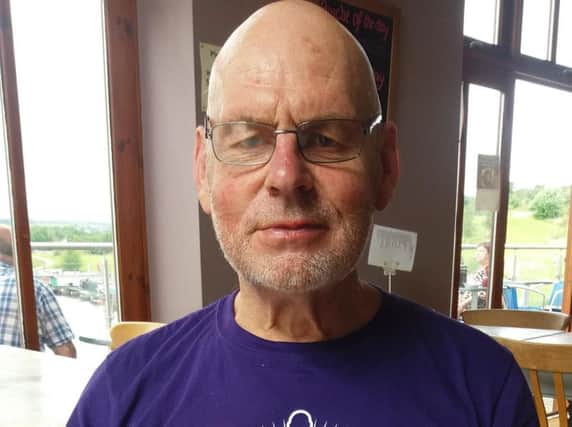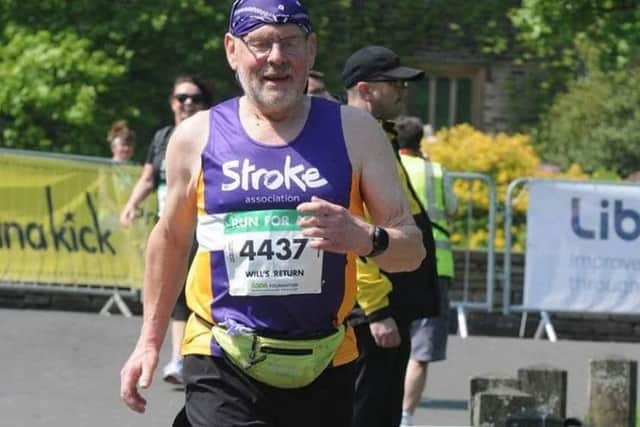A life-saving appeal from Burnley stroke survivor


Bill Swift (70), a former paramedic and grandfather to six, had always been a keep-fit fanatic, running competitively in half marathons and local runs.
Bill had taken part in the London Marathon and was running or cycling most days, when he had a mini-stroke in February 2015, which was initially diagnosed as a seizure.
Advertisement
Hide AdAdvertisement
Hide AdHe ran a 5k race just two months later. With a 10k run in his sights a week afterwards, he ran a local Park Run, cycled seven miles and took part in a 5k in the days leading up to it. When he awoke for the 10k race, he felt unwell and planned to walk the route.


However, after setting off he ran the full race as fast as he could, despite feeling unwell. He even followed the run with a cycle the next day.
Bill woke up on the Tuesday afterwards and knew something was wrong.
“My left side started to feel weak and I rang my doctors, who told me to dial 999. When the ambulance came for me, they didn’t think it was a stroke – and neither did I. As a former paramedic, I’d seen it so many times I others, but didn’t think I was having a stroke. By the time I got to hospital I couldn’t stand.”
Advertisement
Hide AdAdvertisement
Hide AdAfter checks at hospital, scans showed that Bill had had a stroke. He spent eight days in hospital and two weeks in rehabilitation.


Bill still has weakness in his left side but is determined to continue keeping fit and enjoying his hobby, just in different ways. He took part in the Burnley 10k race just 11 months after his stroke, walking the route instead of running.
He said: “I find it very difficult to run now and struggle to coordinate, but I have Nordic walking poles and I row instead of running.
“My stroke has affected me in a big way and there are days when I feel awful, but I’m determined not to let it stop me.
Advertisement
Hide AdAdvertisement
Hide Ad“I need to accept what I have at the moment. I’m very grateful for all the support I received from the hospital and they told me they could see just how determined I was to get better. I want people to know that a stroke can happen to anybody, regardless of age or fitness levels.”
The Stroke Association is raising awareness of the signs of stroke, calling on people to learn the symptoms.
The FAST test helps people recognise the most common symptoms of a stroke and the right action to take:
- FACE: Can the person smile? Has their mouth or eye drooped?
- ARMS: Can the person raise both arms?
- SPEECH: Can the person speak clearly and understand what you say?
- TIME to call 999.
To find out more about the FAST test, and the Stroke Association’s work visit www.stroke.org.uk/FAST.